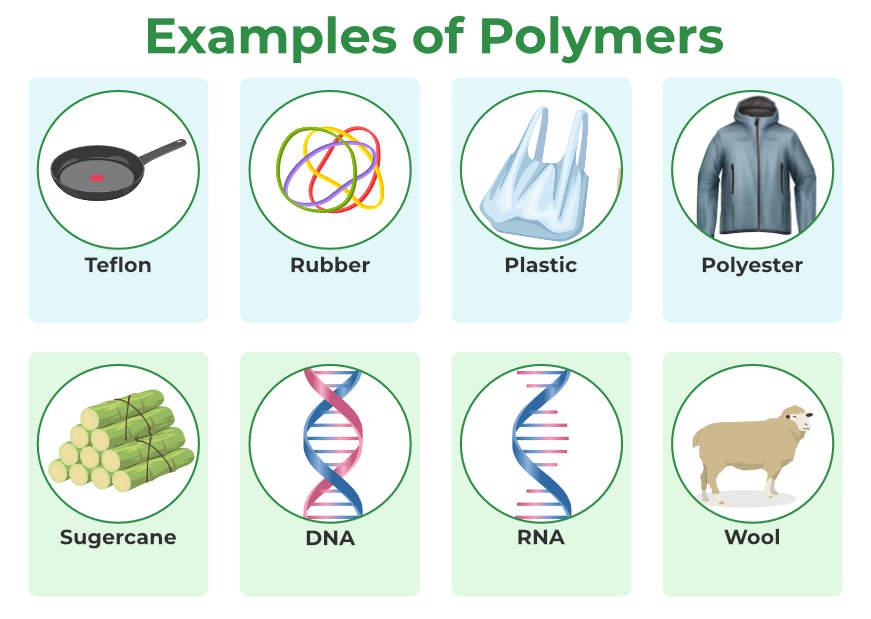Ingenious Polymers: Changing Modern Production
Ingenious Polymers: Changing Modern Production
Blog Article
Exploring the Varied Applications and Benefits of Polymers in Different Industries
Polymers, with their diverse array of buildings and functionalities, have actually come to be vital in numerous markets, each enjoying unique advantages from their application. From enhancing safety and security and performance in the auto field to reinventing clinical tools in the health care market, polymers play a critical duty.
Automotive Industry Applications
Polymers play a pivotal function in enhancing the performance and longevity of different elements within the vehicle sector. These flexible materials are extensively made use of in the manufacturing of different components, varying from interior components to under-the-hood applications. One popular use polymers in the automobile market remains in the production of light-weight components. By replacing standard metal parts with polymer-based choices, vehicles can accomplish better fuel effectiveness without endangering on toughness or safety.

Healthcare Market Advantages
In different health care applications, the benefits of using polymers are commonly recognized for their diverse variety of helpful properties. Polymers play an important function in the health care industry because of their flexibility, biocompatibility, and cost-effectiveness. Among the main advantages of polymers in healthcare is their ability to be customized to certain requirements, such as versatility, toughness, and biodegradability, making them perfect for a large range of clinical applications.
Polymer-based products are thoroughly used in clinical tools, such as catheters, implants, prosthetics, and medicine shipment systems, due to their biocompatibility and ability to resemble all-natural cells. These products can minimize the danger of allergies or denials, improving client security and outcomes. In addition, polymers are lightweight, making them suitable for wearable clinical gadgets and guaranteeing client comfort.
Moreover, polymers enable the growth of innovative therapy methods, such as hydrogels for cells engineering and nanocomposites for targeted medicine delivery. Their simplicity of handling and sterilization makes them crucial for keeping high requirements of hygiene in medical care settings. In general, the varied advantages of polymers add substantially to advancements in medical modern technology and patient care.
Ecological Advantages of Polymers

Additionally, polymers can add to power financial savings due to their lightweight nature. In industries such as transportation, lightweight polymer products can aid lower gas consumption and greenhouse gas emissions. Additionally, polymers can enable the development of energy-efficient items such as insulation products that improve power preservation in structures.
In addition, polymers play an essential role in decreasing water contamination. The usage of polymer-based filtering systems can efficiently remove pollutants and contaminants from wastewater, protecting water resources and ecological communities. On the whole, the ecological benefits of polymers make them valuable properties in advertising sustainability and environmentally friendly techniques across various sectors.
Polymers in Electronic Devices and Technology
Considering the boosting demand for innovative and lasting options in modern industries, the combination of advanced polymer technologies in the world of electronics and modern technology has actually become an essential strategy for driving effectiveness and performance. Polymers have actually transformed the electronic devices market by allowing the production of lighter, extra versatile, and sturdy electronic tools. From mobile phones to clinical devices, polymers play an essential duty in enhancing item design and performance.
One significant benefit of polymers in electronic devices is their protecting residential properties, which help secure fragile electronic elements moved here from ecological elements and electric interference. Furthermore, polymers are necessary in the development of versatile display screens, wearable technology, and printed electronic devices, offering limitless opportunities for developing smart and interconnected gadgets.
Moreover, using polymers in click for more info electronic packaging has actually caused advancements in miniaturization and thermal administration, boosting the total performance and reliability of electronic systems. As innovation remains to advance, the flexibility and versatility of polymers will undoubtedly drive additionally technology in the electronic devices sector, forming the future of technology.
Role of Polymers in Construction and Infrastructure
Polymers provide numerous benefits in the building industry due to their convenience, toughness, and cost-effectiveness. One essential role of polymers in building and construction is their usage in coverings and sealers, supplying protection versus environmental factors such as wetness, UV radiation, and rust.
In addition, polymers play an important duty in lasting construction methods by making it possible for the development of energy-efficient structures. Protecting products made from polymers aid manage interior temperature levels, lowering the demand for heating and cooling systems and eventually reducing power intake - Polymers.
Conclusion
To conclude, polymers play an important role in different markets such as vehicle, medical care, ecological, electronics, and building. Their flexible residential properties make them valuable in creating innovative solutions and items. From boosting gas performance in lorries to boosting clinical gadgets, polymers provide various benefits. In addition, their influence on lowering waste and advertising sustainability highlights their value in contemporary applications. The extensive use polymers shows their substantial payment to progressing innovation and enhancing quality of life.
Report this page